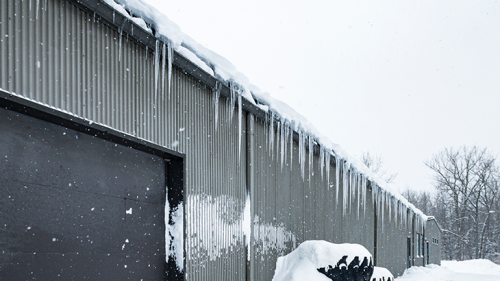Dairy farming can be a dangerous job due to caring for large animals, handling hazardous chemicals, and operating heavy machinery. When it comes to dairy farm safety, training farm workers on the risks is one of the most important steps to minimizing and preventing accidents.
Chemical handling
Dairy farmers are exposed to many chemicals, including cleaning agents, disinfectants, and medications. Improper handling could lead to chemical burns, respiratory issues, or skin irritations.
Precautions farm workers should take when handling chemicals:
- Wear the proper personal protective equipment (PPE) based on the manufacturer’s recommendations
- Ensure proper ventilation in areas where you use chemicals
- Follow the manufacturer’s instructions and safety precautions printed on the label for all chemicals and medications
- Store chemicals and medications as instructed by the manufacturer, and store in a secure location
Animal handling
Proper animal handling is crucial for dairy farm safety. Working around livestock can lead to injuries from kicks or being trampled.
Tips for safe animal handling:
- Avoid working alone when working closely with animals
- Prevent needlestick injuries by practicing safe needle handling
- Make sure cattle is restrained before giving injections
- Never carry needles or syringes in your mouth or pocket, and don’t use your mouth to remove the cap on the syringe
- Take your time when giving the injection
- Approach livestock quietly, move slowly, and make sure they are aware of your presence
- Remember, cows and heifers are more likely to charge when they have their young calf near them
- Understand a cow’s flight zone and use their response to you to move them where you want them to go
- Cows are more comfortable and more easily moved when they are in a group rather than alone
- Loud noises can hurt cattle’s sensitive ears, so keep noise to a minimum
- Kick injuries can be avoided or minimized by working outside of the animal’s kicking range or right up against the animal
- It is also important to follow regular routines to not alarm cows
- Minimize stressors to help keep cows calm and prevent unpredictable kicking and charging
- Educate workers about stressors for cows and how to recognize signs of stress. Stressors can include moving to a new pen/group changes, transportation, calving, and poor cow comfort.
Dairy farm machinery
Heavy equipment, such as skid steers, tractors, and feed mixers can pose a safety risk on diary farms.
Farm workers should take care when working around heavy equipment, including:
- Maintain three points of contact (two feet and one hand or two hands and one foot) when getting on and off the machinery
- When driving a tractor, fasten the seat belt, adjust the mirrors, and check for anything blocking the path before starting
- Double check that the tractor is out of gear before starting or shutting down equipment
- To reduce the risk of skid steer or tractor rollovers, don’t overload the bucket and keep it low
- Train farm workers on mechanical hazards and safety procedures, such as lockout/tagout, power take-off (PTO) safety, and how to safely start and stop machinery
Promote dairy farm safety
All workers are responsible for dairy farm safety. Make safety education a priority for your farm workers. Train them on the risks of dairy farming and steps they can take to stay safe and help reduce injuries . To learn more about how you can protect your dairy farm, talk to your SECURA risk management consultant.






